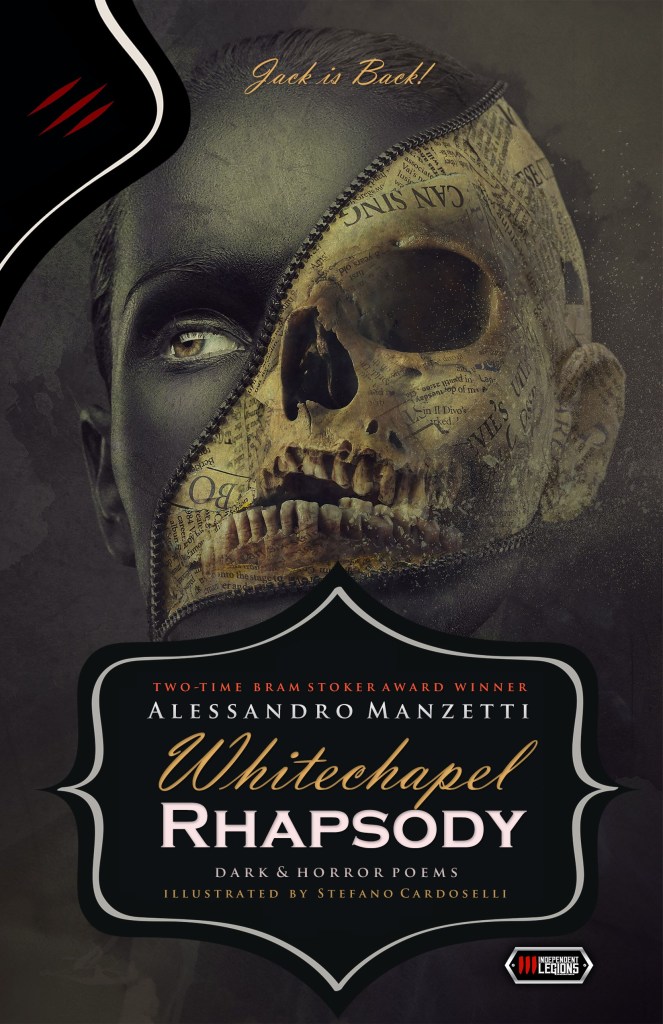
Alessandro Manzetti’s Whitechapel Rhapsody offsets the deluded grandeur of Jack the Ripper’s psychological world against the vivid despair of his environment. Written as a series of thematically connected, free-verse poems, Manzetti’s collection functions as an interesting exercise in depicting this core dissonance: the serial killer’s self-aggrandizing, romantic view of his own violence versus the true horror of its consequences. By setting these ideas at the center of his book, Manzetti offers a worthwhile study of longstanding tensions and ideas central to the horror genre: namely, the aesthetic merits and problems of braiding beauty with violence, and the destructive potential of artists with God complexes (in an abstract way, this brings to mind Lars von Trier’s excellent and similarly complicated The House That Jack Built [2018]).
The book boasts a breadth of reference that is fascinating and, in line with its central concerns, conflicted (not only key characters from the New Testament and Greek mythology, but also Rembrandt, Poe and Dickens, among others). The book is rich with sensory detail, showcasing Manzetti’s penchant for invoking brutal imagery via gorgeous language. Taking the form of something close to prose-poetry, the collection’s verse is accompanied by evocative black-and-white illustrations by Stefano Cardoselli.
Interestingly, the final poem, “The Dark King,” deviates from the book’s fixation on the Whitechapel district of 1888. Presenting the book’s most explicitly psychosexual elements, this piece dehistoricizes Jack the Ripper and imagines him as a cipher for man’s social rot, transcending time and place: “I am … / … Bukowski’s drunk stomach,” Manzetti writes, before urging the reader to “take between [their] teeth / this ticket to a grotesque Musée d’Orsay / full of iridescent French and Tahitian vulvas.” The poem (and collection) closes with a disturbing final line that implicates the reader in this uneasy marriage between cruelty and aesthetic attraction: “I am your dark side.”
At a slim length of fewer than one hundred pages, Whitechapel Rhapsody is ambitious, richly developed, and well worth your time.

Leave a comment